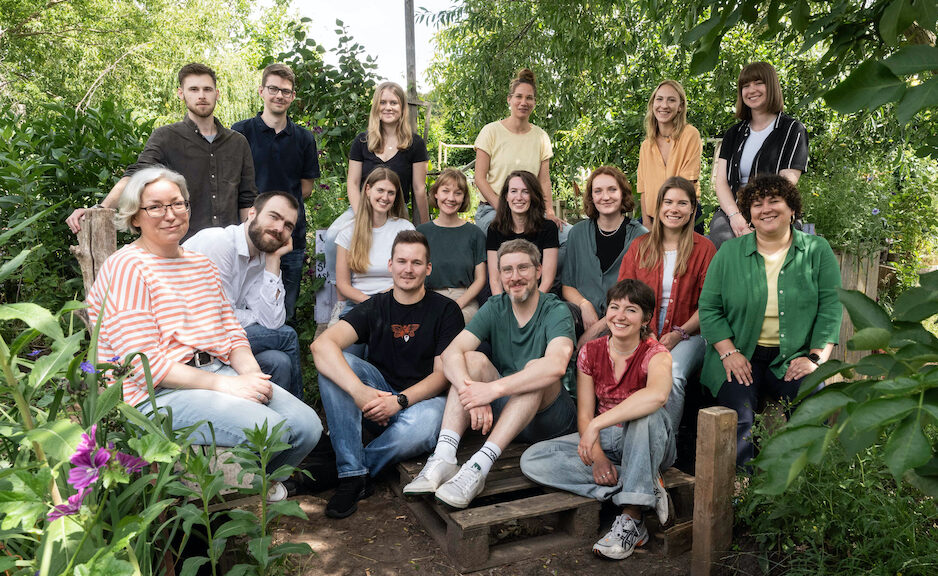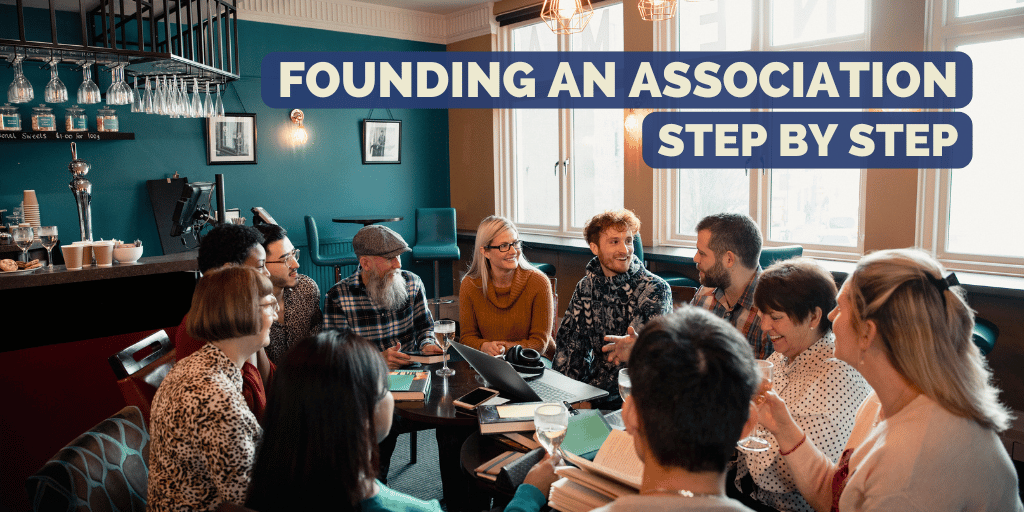Founding a (non-profit) association in Germany, here’s how it works
Many social, cultural or ecological projects start informally – as an initiative of committed people who want to make a difference together. But at some point, the desire for more legal security, more professional organization or better access to funding grows. This is when the question arises: should we be founding an association?
In this article, you will learn about the advantages of a registered association, the different types, the step-by-step process for founding an association in Germany and where you can find the right templates. This is how you can get started well informed.
Contents
- What is a (non-profit) association and what other forms of association are there?
- What are the most important steps for founding an association?
- Where can I find templates for founding an association?
- What mistakes should I avoid when founding an association?
- Finde Ehrenamtliche für deinen Verein mit vostel.de
What is a (non-profit) association and what other forms of association are there?

An association is a permanent colition of at least two people (unregistered association) or seven people (registered association) that pursues a specific purpose. The law primarily distinguishes between ideal associations (Section 21 BGB) and commercial associations (Section 22 BGB).
The ideal association is relevant for most civil society initiatives. It does not pursue economic goals, but idealistic purposes – for example in the social, cultural or ecological field. If the ideal association is also recognized by the tax office as a non-profit organization (according to §§ 51-68 of the German Fiscal Code), it can claim tax benefits and issue donation receipts. The prerequisite is that the purpose of the association serves the common good and that surpluses are used exclusively for the realization of the association’s purpose.
An economic association, on the other hand, may pursue economic purposes on a permanent basis, for example by operating a company. It requires state approval from the federal state’s authorities – however, it is rarely relevant in a non-profit context.
As long as an association is not entered in the register of associations, it is considered an unregistered association. In this case, it is generally not the association itself that is liable, but the persons involved. To avoid this, it is advisable to enter the association in the register. It then becomes a registered association (‘eingetragener Verein’ = e. V.) and acquires its own legal personality.
What are the most important steps for founding an association?

Founding a (non-profit) association is easier than many people think – but it still requires careful planning and a few formal steps. Here you will find an overview of the most important stages on the way to becoming a registered association in Germany (e.V.):
Step 1: Determine the purpose and name of the association
Think about what your association stands for and what purpose it should fulfill. The purpose of the association is key – especially if you want to apply for non-profit status. When choosing a name, also make sure that the name is unique and that there is no risk of confusion. Otherwise, infringements of name and trademark rights can lead to considerable problems and even claims for damages later on. You can check the register of associations at your local court to see if your desired name is already taken.
Step 2: Create association statutes
The association statutes are the heart of your association. Among other things, it defines how the association is organized, how resolutions are passed and how members can participate. In order for your association to be recognized as a non-profit organization, the association statutes must comply with the requirements of the German Fiscal Code (§§ 51-68 AO) and contain, among other things, the purpose, name and registered office of the association. The Federal Ministry of Finance, for example, provides a suitable model statute for non-profit associations.
Step 3: Hold the inaugural meeting
At least seven legally competent persons must be present to found an association. At the founding meeting, they officially adopt and sign the association statutes and elect the board. Important: The resolutions and attendance must be documented in founding protocol. You can find a template for this here at deutsches-ehrenamt.de, for example.
Step 4: Entry in the register of associations
The association statutes and founding protocol must now be checked and certified by a notary. The association is then registered at the relevant local court. Only then will your association receive the addition “e.V.” and become legally independent. The fees for registration and notary usually amount to around 100-150 euros.
You can find information and the registry court responsible for your area here at justiz.de. You can find notaries via the information portal of the Federal Chamber of Notaries.
Step 5: Apply for non-profit status
You must apply to the tax office for recognition as a non-profit organization. To do this, you submit the association statutes, founding protocol and, if applicable, an activity concept. You will only receive a notice of exemption (‘Freistellungsbescheid’ in German) and be allowed to issue donation receipts once you have been recognized. Many tax offices offer an initial review of documents and the chance of recognition of non-profit status in advance – take advantage of this offer to avoid corrections later on. You can find the tax office responsible for you at the Federal Central Tax Office.
Step 6: Start and organize association work
Once the association has been formally founded, the work can really begin. Remember to open an association account, organize a clear distribution of tasks on the board and think about internal communication, the frequency of association meetings and public relations work. If you are setting up a website, you are legally obliged to create an imprint and consider a data protection concept as soon as you process personal data.
Where can I find templates for founding an association?

Especially in the start-up phase, it can be very helpful to use tried-and-tested templates – be it for the association statutes, the founding protocol or the invitation to the founding meeting. Such documents not only ensure clarity in the process, but also help to avoid legal errors – especially if you are aiming for non-profit status.
You can find an overview of important templates here:
- Template for an association statute of a non-profit association (Federal Ministry of Justice)
- Template for a foundation protocol (Deutsches-Ehrenamt.de)
- Application for entry in the register of associations (Federal Ministry of Justice)
- Guide to drafting association statutes and more about association law (Federal Ministry of Justice)
What mistakes should I avoid when founding an association?
Even though it is relatively straightforward to set up an association, there are a few pitfalls that are best avoided from the outset.
A common mistake: incomplete or incorrect association statutes. If key details are missing or do not comply with the requirements of the tax office, non-profit status can be refused. Therefore, use a checked sample statute and – if possible – have it checked in advance by the tax office.
Also important: Too few members at the time of founding. You need at least seven founding members to be entered in the register of associations. They must sign the association statutes and confirm the founding protocol.
A third point concerns the founding protocol. Correct wording is important here – for example, regarding the adoption of the association statutes, the election of the board and the presence of those involved. Here too, templates help to ensure that nothing is forgotten.
Also avoid these points:
- Unclear or overly broad formulations of the association’s purpose
- Contradictions between statutes and actual practice
- No proof of non-profit status for donation appeals
- Lack of legal protection, e.g. through association liability insurance
- No clear rules on membership and contributions
Tip: If you are unsure – for example about insurance cover or the legal framework – get support from a volunteer advice center such as the Deutsche Stiftung für Engagement und Ehrenamt or a specialized association consultancy such as deutsches-ehrenamt.de.
Find volunteers for your club work with vostel.de
An established association not only needs a solid foundation – it also needs committed people to fill it with life. On our volunteering platform vostel.de, you can register your association with just a few clicks and look for people to permanently join you in your work or for limited projects or one-off assignments.
We are also happy to support you personally with the registration and creation of appealing volunteering requests. You can also find more valuable tips on recruiting and retaining young volunteers in our blog.
Your vostel.de team wishes you every success in founding your association!








No Comments yet!